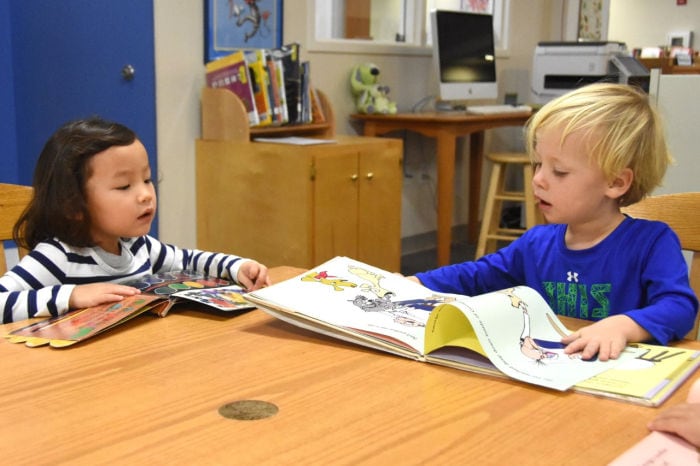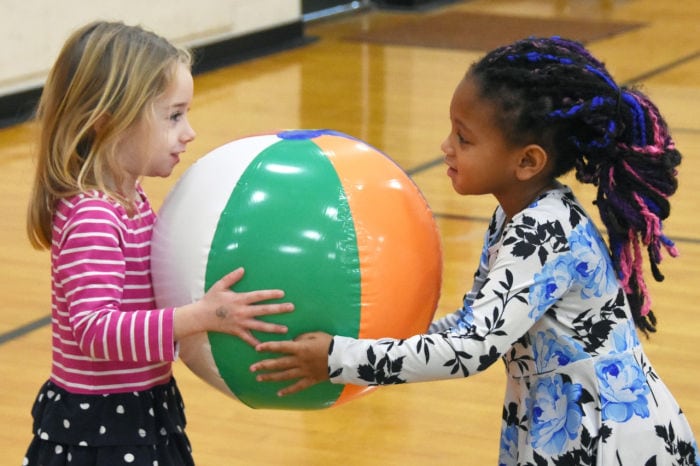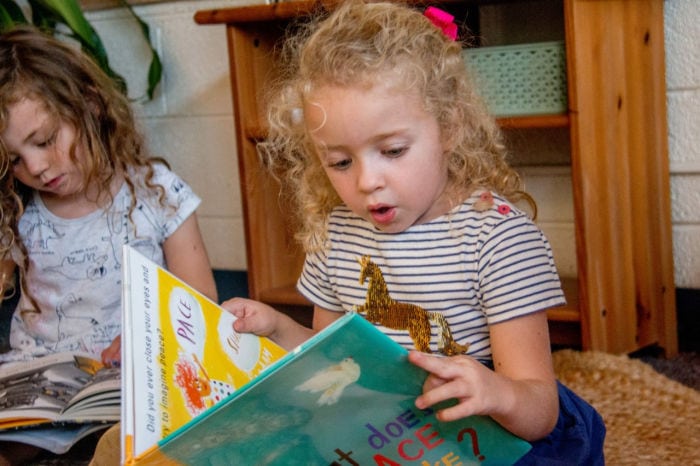By Julie Smith, Director of Lower School at Summit School
In my many years of experience with parents of very young children, one of the most frequent questions I receive is the wondering if a child is on track to learn to read. Parents want to know what they can do in the very early years, before school, to help their child become a reader. The answer is actually much simpler than most people can imagine: Enjoy reading yourself and read aloud to your child. Really. In a nutshell, that’s it. But keep reading for more details.
Popular press and research offers parents many strategies to foster the acquisition of reading, yet many of these methods are best left to a formal schooling environment. If parents focus on a few rich yet vital experiences within the routine home environment, children will be better prepared for the school environment. Much of the foundation for reading and language is laid well before the kindergarten year begins.
 Below are some easy and fun things for parents to put into practice now. These experiences are the building blocks for literacy.
Below are some easy and fun things for parents to put into practice now. These experiences are the building blocks for literacy.
- Talk to your child. Building a good vocabulary through engaged conversation is one of the MOST important activities. Ask more open-ended questions. Examples include: “Tell me about a time when…”, “What does this look like? Taste like? Smell like?”, “How can we solve…”.
- Visit interesting places and use these visits to extend interesting conversations. Examples include museums, parks, playgrounds, libraries, and the zoo. Any new experience will spark conversation—even something as simple as the grocery store.
- Play games together. These often promote reading and conversation. They also build focus and critical thinking skills. Examples may be simple card games such as Go Fish and other board games like Candy Land and Sorry. More ideas here.
- Make space for quiet. Create a comfortable cozy space free of distractions where they can read or look at books. This might also be a space or time where you find your own time to read.
- Read many different kinds of books aloud to your children. Do this EVEN after they can read independently. As mentioned the library is a great day trip—and the new Forsyth County Central library is beautiful! Choose books with long and complex sentences. Don’t forget about magazines as well. Great Books for Young Children is one of many lists for ideas. This resource includes recent and older, enduring books as well.
- Read your own books and let your children see you doing it. Children model what they see. For many parents of young children, the idea of finding even 10 minutes of free time to read seems laughable! However, starting small alongside your child will eventually grow into a longer practice. Below are some resources for your own reading habits:
- 10 Benefits of Reading: Why you should read everyday—This is a great place to find motivation for yourself.
- Modern Mrs. Darcy—A “mom blog” focusing on many things but heavy on books and podcasts.
 In the end please remember our children are a treasure trove of curiosity and bring us joy. It is not just about being prepared for reading. It’s about being prepared for life and building character. Reading together is one way to build shared experiences, establish habits, and create wonderful memories with your child. Books and the characters within them also build compassion and empathy. These characters allow children to see and explore feelings in non-threatening ways. This list from Common Sense Media has suggestions for books that teach empathy.
In the end please remember our children are a treasure trove of curiosity and bring us joy. It is not just about being prepared for reading. It’s about being prepared for life and building character. Reading together is one way to build shared experiences, establish habits, and create wonderful memories with your child. Books and the characters within them also build compassion and empathy. These characters allow children to see and explore feelings in non-threatening ways. This list from Common Sense Media has suggestions for books that teach empathy.
Happy Reading and Happy New Year to you and your family!
*Sponsored by Summit School

















The picture looks cute. I think schools has to encourage more and more to the kids to increase reading habit. Though smartphones hugely reduced the reading habits, but still many readers are interested in buying books and shown interested in reading. Fairfax Virginia DUI Lawyer
Thank you for taking the time to visit our blog, engage with our content, and be a part of our online community.
New York State Divorce Rules
Talk to your child snd play games!! Yes. These ideas might seem small but I think they are the best ever, gain skills and a strong parent/child relationship at the same time. Great read!